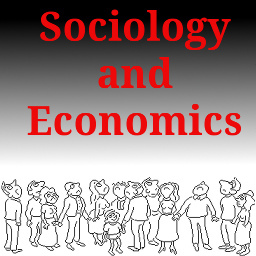
Why should you listen to me? Because I assimilate data and resynthesize it. I tend to be about a step and a half behind the trendsetters – just before something hits critical cultural mass. I called both the tech bubble about a year before it hit, the housing bubble about two years before it hit. I still reserve the right to be completely wrong. Honestly, I hope I am.
I read a bit about the education bubble today, and it “felt” right, just like housing and tech did to me. I think it’s the for-profit colleges – especially the fly-by-night ones and the shadier ones (I tweeted an infographic the other day) that are going to collapse this thing. They’re ruining the reputation of the established schools. Too many colleges are trying to be like Findlay’s nuclear medicine program (seriously, read this post on Findlay for an example of what’s happened already), trying to get as many people in the door as possible, with little regard to how many make it out the door successfully, or whether or not they can get jobs. They have to, in order to survive against the lower-margin private schools, because for non-traditional students, convenience trumps prestige. (See pages 3 & 4 of my paper here for the background – nontraditional students were 75% of undergraduates in 2000.)
This has all been riding on the meme of “College == higher lifetime earning”. Crippling school debt along with dubious degree programs (and even an erosion of standards within the programs themselves) has slowly undermined that meme. The erosion of standards (replaced by a need for paying bodies) is the largely unrecognized portion of degree inflation. Add to that the glut of degrees and the lack of meaningful differentiation between degree programs (especially for smaller schools) and employers have to jack up the sheepskin requirements for any job. Heck, there’s a job I was looking at that required a PhD that is essentially Master’s level (or even grad student level) gruntwork – literature review, analyzing reports, analyzing statistical data, writing reports.
Unlike finances, there’s no way for education to further inflate. Hence, devaluation is the only remaining alternative.
So what does this mean for higher education in general? Look at the prior two bubbles. Both saw massive dieoffs, and while vaporware in both cases was the first to go, good and well-run businesses (and real estate) got smashed as well. Those that survived the tech crash were innovative, well-branded, well-conceptualized, and met a real need. Google, Y!, and Amazon come to mind right off the bat. Real estate that survived (or wasn’t hit so badly) either wasn’t largely inflated, like the Dayton region, or that has continuing real value.
Real estate also shows the greatest cautionary tale for higher education. “Convenience” and some of the other typical suburban qualities (safety, cleanliness, etc) do have real value, but are commonplace. (Limited by geography, but still commonplace.) Morgantown, WV – my hometown – is one of the places in the US that was least impacted by the real estate crash. It has all of the above – it never overvalued much (because of the reputation of WV, I suspect),
but at the same time there’s a HUGE deal of geographic limitation because of the terrain and relative lack of bedroom community development. While its economy is limited to one big industry, that’s WVU – and it spins off a lot of other, smaller economic engines.
My recommendations to higher education at this point would be: Batten your fiscal hatches, but whatever you do, MAINTAIN quality. As a friend of mine said recently, postsecondary education’s customers are the people who hire graduates, not the graduates themselves. Make a distinctive name through quality-based achievement. Celebrate your best and brightest – and ensure that industry knows what kind of innovation is happening in all sectors of your university.
The absolutely craptastic part of this, though? Lower-income folks (who largely try to avoid debt, by the way) and new graduates who are going to be slammed when their degrees don’t even meet their lowered expectations.
Remember, kids, you are never going to retire. You are, whether you like it or not, a freelancer.
Plan accordingly.
(Hint: Scott Adams’ advice ain’t bad.)
